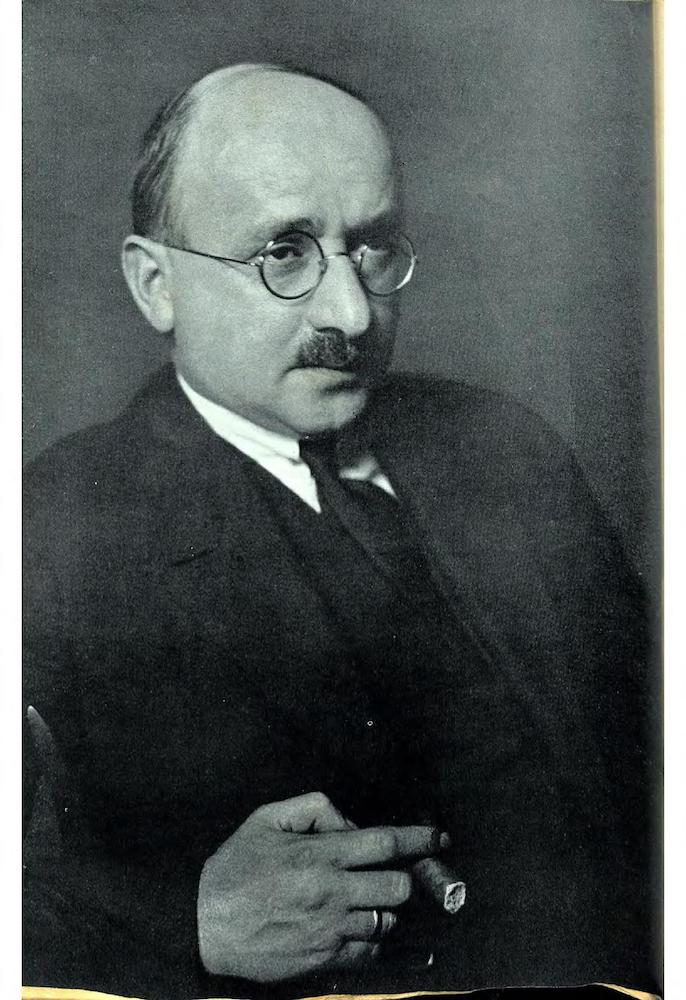
Max Eitingon. Source: Israel Psycho-
analytical Society, frontispiece.
Max Eitingon (1881-1943) was born into a Jewish family in Western Russia where political instability gave rise to pogroms that forced his family to flee to Leipzig.
After completing his early education in Leipzig, Eitingon studied philosophy at universities at Heidelberg and Marburg. Between 1906-1904, after beginning medical studies at Zürich, he came into contact with the very active psychiatry-psychopathology group centred on Eugene Bleuler (1857-1939) and Carl Gustav Jung (1875-1961). Through them, he was introduced to the work of Freud in Vienna. On the January 30, 1907, Eitingon became the very first non-Viennese follower to find his way to Freud at the Berggasse. After completing medical studies, Eitingon moved to Berlin but remained in touch with Freud in Vienna. Theirs was a lasting bond. In October 1909, for example, he spent three weeks with Freud who, according to Jones, began a training analysis with him. (Jones 1955, "The Beginnings of International Recognition")
Because Eitingon's major contribution to psychoanalysis was never on the theoretical side, citations of his publications are rare. But he was a master of organization, and matters related to organizing and training were his speciality. He joined the pre-war Berlin Psa. Society around 1909. During the 1913 difficulties with Jung and other Swiss analysts, Eitingon remained loyal to Freud, who in late 1919 would reward him with a "symbolic" ring of fealty, and a place as the sixth and, for then, final member of the inner "Committee" (see Freud chronology, 1912).
Following his war service in 1914-18 as an army medic, Eitingon joined Ernst Simmel (1882-1947) and Karl Abraham (1877-1925) in establishing the Berlin Psa. Policlinic. His geographical distance from Freud would lead us to expect a large correspondence over the years, though the only known to be published is a sparse entry in a volume of Freud's general letters (Freud, E.L., 1960). In 1928, by the Tenth International Psa. Congress at Innsbruck, Eitingon was elected President of the International Psa. Association. With the advent of Hitlerism in Europe, Eitingon fled to Palestine in 1933, where he was instrumental in forming the early Palestine Psa. Society, perhaps working there with David Eder (1865-1936), an earlier emigré from England. In July 1939 Eitingon paid a last visit to the dying Freud in London. He died in Israel in 1943.
Bibliography
Alexander, F. et al. Psychoanalytic Pioneers. New York: Basic Books, 1966.
Freud, E. L. Letters of Sigmund Freud, 1873-1939. New York: Basic Books, 1960.
Gay, Peter. Freud. A Life for Our Time. New York: Norton & Co., 1988.
Israel Psycho-analytical Society. Max Eitingon in memoriam. 1950. Internet Archive. Contributed by the international Psychoanalytic University, Berlin and Prof. Dr. Lilli Gast. Web. 15 March 2021.
Jones, Ernest. The Life and Work of Sigmund Freud. Vol. II. London: Hogarth Press, 1955.
Created 15 March 2021